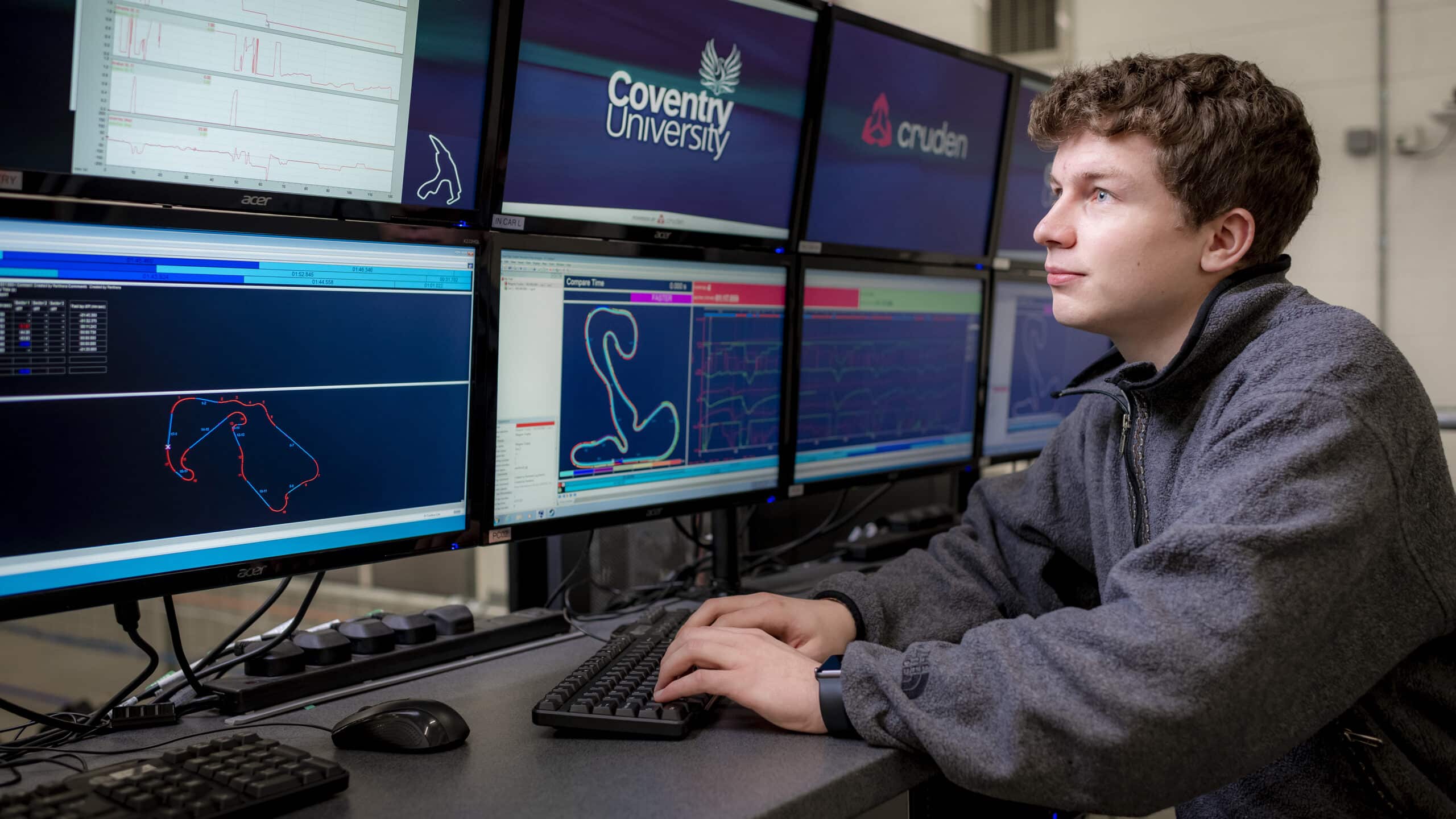Mechanical Engineering forms the bedrock of numerous engineering disciplines, from automotive and aerospace to marine and medical sectors. Its influence permeates virtually every aspect of modern life, with engineers contributing to solutions for healthcare, energy, transportation, hunger, space exploration, climate change, and more. They are the builders of the present and architects of the future.
That’s precisely the kind of mechanical engineers Coventry University produces. Skilled and career-ready, they stand out for their education here, one that’s defined by access to state-of-the-art facilities, a great student experience, global exposure, and industry links.
Set within England’s third-best student city and the birthplace of the cycle industry and the motor car in Britain, the School of Mechanical Engineering offers programmes that reflect the needs of industry and accrediting professional bodies such as the Institution of Mechanical Engineers.
“Our Mechanical Engineering course is specifically designed to be flexible in its first year, allowing transfers to and from other courses,” says Arnaldo Delli Carri, course director of BEng/MEng Mechanical Engineering. “It is highly customisable in the third year (BEng) with a range of niche option modules (e.g, Advanced Manufacturing, Clean Energy, Biomechanics) that will enhance students’ knowledge and foster passion for their chosen area of focus. Plus, there are diverse pathways for fourth-year (MEng) students who wish to gain a deeper understanding of a specific subject within the realm of Mechanical Engineering (e.g. Computational Mechanics, Renewable Energy, Intelligent Systems).”

With a projected demand for 1.8 million engineers in the UK by 2025, Coventry University’s mechanical and manufacturing engineering programmes produce industry-ready graduate engineers. Source: Coventry University
The school empowers students through three specialised programmes: Mechanical Engineering MEng/BEng (Hons), Manufacturing Engineering MEng/BEng (Hons) and Advanced Mechanical Engineering MSc (Hons).
The Mechanical Engineering MEng/BEng (Hons), accredited by IMechE, provides a strong foundation in core and emerging engineering knowledge. Its flexible curriculum blends theory with practical know-how, with modules in fields like mechanical science and manufacturing technology. There are specialised pathways like renewable energy and propulsion systems. To hone their skills, they gain hands-on experience in the cutting-edge High Performance Engineering Centre, which is equipped with wind tunnels, labs, testing rigs, and workshops.
The Manufacturing Engineering MEng/BEng (Hons) with foundation year, accredited by the Institute of Engineering and Technology (IET), focuses on moulding graduates for immediate industry impact. Students tackle real-world challenges through project-based learning, actively turning theory into action. Their journey is enriched by collaborations with top engineering professionals and exposure to innovative methodologies at the award-winning Institute for Advanced Manufacturing and Engineering (AME). Here, they gain firsthand experience in facilities producing parts for leading automotive companies such as Jaguar Land Rover and Bentley.
The MSc (Hons) in Advanced Mechanical Engineering, accredited and recognised by the Chartered Management Institute and IMechE, delves deeper into engineering, physics, and materials science. Students explore the design, analysis, modelling, simulation, manufacturing, and maintenance of mechanical systems. The programme culminates in an individual project, allowing them to apply their knowledge and techniques to a chosen area of specialisation or a multidisciplinary challenge. Modules like Design Principles and Practice, Engineering Simulation and Analysis, and Thermofluid Systems expand their expertise in advanced mechanical engineering practices.
Pair these programmes with an outstanding academic staff, and you have a recipe for success. “Our staff have vast industrial and academic experience, are passionate about the dsicipline, dedicated to teaching, and the majority of them are recognised Fellows of the Higher Education Academy,” Carri says.

Dedicated labs at all levels offer hands-on learning — from basics like inertia to advanced topics such as solar energy and robotics. Source: Coventry University
The School of Mechanical Engineering has cutting-edge facilities that match the impact of its coursework. Here, students dive into virtual worlds with the new XR Powerwall, visualising designs in 3D. Extensive workshops offer hands-on experience, ranging from 3D printing in metal and plastic to CNC machining and advanced manufacturing techniques like carbon fibre printing.
Across all year levels, dedicated labs support experimentation. First-year students explore fundamental concepts such as inertia and fluid dynamics, while in second and third years we investigate advanced topics like solar energy harnessing and robotics control. Equipment that explores wind turbines, heat exchangers, and materials testing empowers students in translating theory into practice. This sector-leading learning environment fosters technical expertise, critical thinking, and innovation, preparing graduates for real-world engineering challenges.
What’s more, Coventry University has received five million pounds for a cutting-edge digital lab, one set to boost student skills in healthcare and engineering. Equipped with 3D metal printing and advanced radiography, the Precision Digital Manufacturing and Healthcare Technology Lab will serve engineering and health students, preparing them for in-demand industry roles.
Coventry’s School of Mechanical Engineering isn’t just teaching the future; they’re learning with it. Digital libraries empower students and staff with vast resources, while online platforms spark collaboration and research. Imagine diving into virtual labs, mastering concepts through 3D models, or learning at your own pace with flexible modalities.
Interested? Click here to learn more about Coventry University’s School of Mechanical Engineering programmes.
Follow Coventry University on Facebook, Instagram, X, YouTube, and LinkedIn










